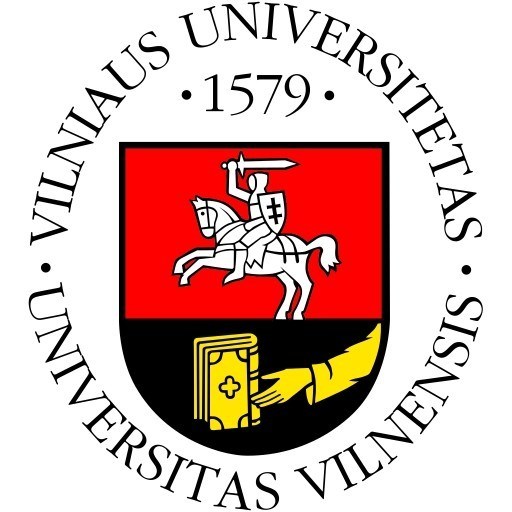Photos of university / #brownu
Program Description for the Data Science Degree at Brown University
The Data Science program at Brown University offers a comprehensive and interdisciplinary curriculum designed to equip students with the fundamental skills and knowledge necessary to analyze complex data sets and extract meaningful insights. This program emphasizes both the theoretical foundations and practical applications of data science, integrating elements from computer science, statistics, mathematics, and domain-specific expertise to prepare students for diverse careers in industry, research, and academia.
Students in the Data Science program will engage with a rigorous coursework that covers essential topics such as statistical inference, machine learning, data visualization, and programming in languages like Python and R. The program also explores data management, algorithms, and ethical considerations related to data collection and analysis. Through a combination of lectures, hands-on projects, and collaborative research opportunities, students develop strong problem-solving skills and the ability to communicate complex data-driven findings effectively.
The program encourages an interdisciplinary approach, allowing students to tailor their education to specific areas of interest such as healthcare, economics, social sciences, or engineering, thus promoting versatility and innovation. Brown's collaborative environment fosters close interaction with faculty members who are leading researchers in data science and related fields. Students also benefit from access to cutting-edge resources, workshops, and seminars that deepen their understanding and keep them abreast of the latest advancements in the field.
Graduates of the Data Science program at Brown University are well-prepared for careers in data analysis, machine learning engineering, data consulting, and data-driven research. They also possess a strong foundation for pursuing graduate studies or professional certifications that require advanced data analytical skills. Overall, this program aims to produce highly skilled, ethically responsible data scientists who can address real-world challenges and contribute to innovation across multiple sectors.
The program will be conducted over one academic year plus one summer, with the option for an additional pre-program summer for students who lack one or more of the basic prerequisites. The regular program includes two semesters of coursework and a one-summer (5- 10 week) capstone project focused on data analysis in a particular application area.
There are nine credits unites required to pass the program: four in each of the academic year semesters, and one (the capstone experience) in the summer. The nine credit-units divide as follows:
- 3 credits in mathematical and statistical foundations,
- 3 credits in data and computational science,
- 1 credit in societal implications and opportunities,
- 1 elective credit to be drawn from a wide range of focused applications or deepertheoretical exploration, and
- 1 credit capstone experience.
Semester 1
The first semester will consist of two double-credit courses, each counting as two units (six meeting hours per week per course).
- An Introduction to Topics in Probability, Statistics, and Machine Learning: This course will include topics such as maximum likelihood estimation (MLE); entropy; divergence; random numbers and their applications; introduction to high- dimensional data; graphical models and exponential families; regression and density estimation.
- An Introduction to Data and Computational Science: The course will cover basic computational models and algorithms; data management and visualization; basic web programming; information retrieval; integration, and cleaning; hardware; distributed systems; security and privacy; multi-media analytics.
These two courses will be closely coordinated and will come together in the final weeks through small-group projects that draw on the methods learned in both. The project groups formed toward the end of the term will work on analyzing data from one of several possible areas of application using the techniques and tools learned in the first–semester courses. The semester will conclude with each group giving an oral presentation or hosting a poster session.
Semester 2
The second semester covers four single-credit courses:
- Probability, Statistics and Machine Learning: Advanced Methods: Includes topics such as estimation and approximation in exponential families; nonparametric regression and density estimation; classification; ensemble methods;
- Data and Computational Science: Advanced Methods: Includes topics such as data mining; computational statistics; machine learning and predictive modeling; big data analytics algorithms;
- Data and Society: A uniquely Brown course involving case studies that will cover topics such as the broader implications in policy and ethics; publication bias and its impacts on society; security vs. privacy; and homeland security, NSA, and the hope for automated triage. This course will leverage faculty and curricular existing resources, including the Watson Institute and departments in the social sciences and humanities;
- Elective: The elective course will be proposed by the student and approved by the program director. Please note that a number of both existing and new courses that would be appropriate electives fall outside of the four core departments. Students may choose, in these elective courses and in their capstone projects, to apply the skills acquired in the rest of their courses to topics and areas of particular intellectual interest.
Summer Capstone
For their capstone experience, students will work on a project with real data, potentially in any one of the areas covered by the elective course. A faculty member from one of the four departments will oversee the capstone course, although each student may collaborate with an additional faculty member, postdoc, or industry partner on his/her project. Each student will prepare a paper and/or oral presentation of his/her work. The summer capstone should entail at least 180 hours of work (to receive one course credit) and as such, may be completed in 5-10 weeks. The project may begin and end at any time during the summer. A letter grade will be awarded for the summer capstone course.
Upon completion of the summer capstone, students will receive a certification of completion of course requirements for the ScM degree, although the actual degree will not be officially awarded until the following May.
Pre-program summer (as applicable)
In order to cover missing pre-requisites we will offer courses during the Brown summer session. Students needing this background preparation will enroll through the usual channels. We note that these summer courses are prerequisites only and would not count towards the master’s degree requirements. Students taking Brown courses in the summer will incur additional tuition costs. Students admitted to the master’s program may also complete their prerequisite coursework at another institution, with appropriate approval of the program director.
Requirements
- GRE General: Recommended
- GRE Subject: Not required
- Record of grades or other academic performance
- Letters of reference (you might suggest to your letter writers that they look at this site)
- TOEFL (for applicants whose native language is not English)
Application Procedure
We accept applications until March 15 for fall admission. We admit students on a rolling basis but cannot accept applications after the deadline has passed. Once the application system has closed, it will not reopen until mid September for new applications. You will be notified by the Graduate School if you are admitted.
Please go here to apply. We strongly urge you to provide unofficial (scanned) copies of your transcripts as part of the electronic application. You will be prompted to mail an official copy of your transcript if you are accepted to the program.
Graduate applications are handled by a combination of the Data Science Initiative and the Graduate School. Your application is formally processed by the Graduate School. Its content is then read by members of the Data Science Initiative, who then forward their recommendations to the Graduate School. The Graduate School formally admits you to the program. Therefore, you may receive correspondence from either of these entities.
Admission requirements
The new master’s program at Brown aims to admit students from a wide range of backgrounds for distinctive careers in Data Science.
Students entering the program will be required to have completed at least a year of calculus (at the level of MATH 0090 & 0100), a semester of linear algebra (at the level of MATH 0520), a semester of calculus-based probability and statistics (at the level of APMA 1650), and an introduction to programming (at the level of CSCI 0150 or 0170).
We also admit exceptional students who lack one or more of the minimum requirements in linear algebra, probability and statistics, and computer science. The four departments (Math, Applied Math, Computer Science, and Biostatistics) will offer a suitable course in each of these three topics during the Brown summer session before the first semester.
The Data Science program at Brown University offers a range of financing options to support students in their academic pursuits. Undergraduate students enrolled in the program can benefit from several sources of financial aid, including need-based federal and institutional grants, scholarships, work-study opportunities, and loans. Brown University’s Office of Financial Aid provides comprehensive support, assisting students in navigating the application processes for scholarships such as the Brown Promise Initiative, which offers financial aid packages that meet 100% of demonstrated need without requiring loans. Additionally, students may apply for external scholarships and fellowships relevant to data science or computer science fields to supplement their funding sources. Graduate students pursuing advanced degrees in Data Science are eligible for fellowships, research assistantships, and teaching assistantship positions, which offer stipends and tuition remission. Brown University's commitment to affordable education is reflected in its need-blind admission policy for domestic undergraduate applicants and the mandate to meet full demonstrated financial need. For international students, financial aid options are more limited but the institution offers some merit-based scholarships and external funding opportunities. Students are encouraged to complete the Free Application for Federal Student Aid (FAFSA) and the CSS Profile to determine eligibility for various aid programs. Brown also promotes work-study opportunities, enabling students to earn income through campus employment aligned with their academic schedules. Furthermore, the university provides financial literacy resources and counseling services to help students efficiently manage their finances during their studies. Overall, Brown University’s Data Science program benefits from a multifaceted financial aid framework designed to reduce economic barriers and support a diverse student body in accessing world-class education in data science.
The Data Science program at Brown University offers a comprehensive curriculum designed to equip students with the skills necessary to analyze complex data and extract meaningful insights. The program emphasizes a strong foundation in statistical methods, programming, and data analysis techniques, combined with an understanding of domain-specific applications. Undergraduate students have the opportunity to engage in interdisciplinary coursework, collaborating across departments such as computer science, applied mathematics, and social sciences to develop versatile competencies. The program incorporates both theoretical knowledge and practical experience, including participation in research projects, data-driven problem solving, and internships. Students are encouraged to learn programming languages such as Python and R, utilize various data analysis tools, and comprehend ethical considerations related to data usage. Graduate students pursuing a master's or Ph.D. benefit from advanced coursework, research mentorship, and access to cutting-edge facilities. Brown University's commitment to collaborative learning fosters a dynamic environment where students can work on real-world challenges, often partnering with industry and governmental agencies. The university also emphasizes diversity and inclusion, ensuring that the field of data science is accessible and representative of a broad range of perspectives. Graduates of the program go on to successful careers in technology, finance, healthcare, academia, and government, applying their data science expertise to make informed decisions and innovate within their respective fields. Overall, Brown University's Data Science program stands out for its rigorous academic standards, interdisciplinary approach, and strong emphasis on ethical data practices, preparing students to be leaders in the rapidly evolving world of data analysis.







